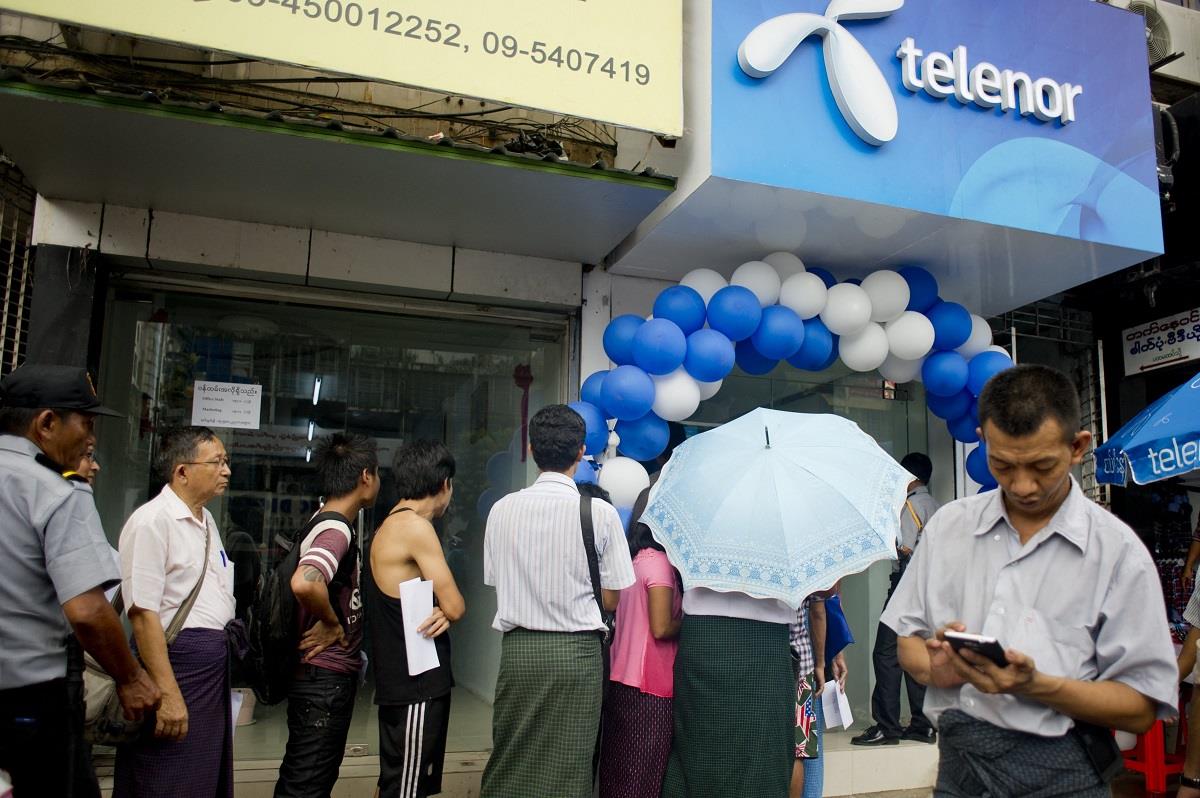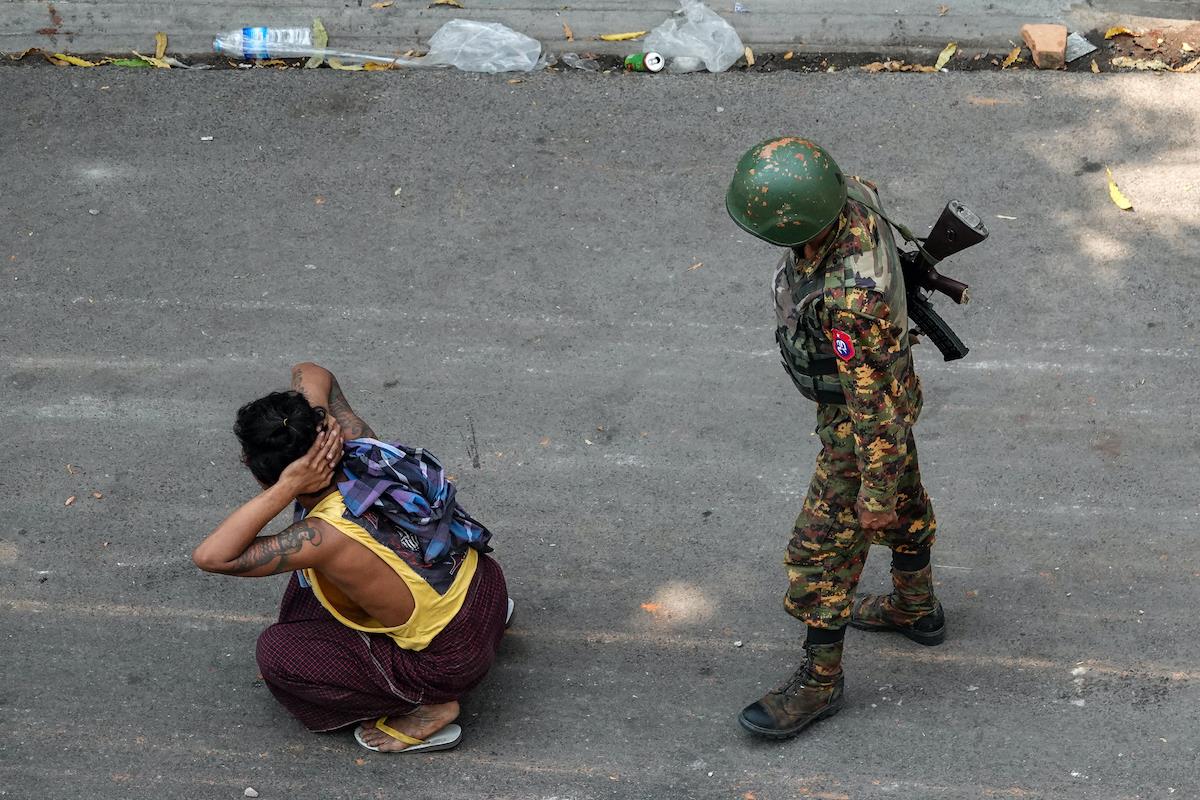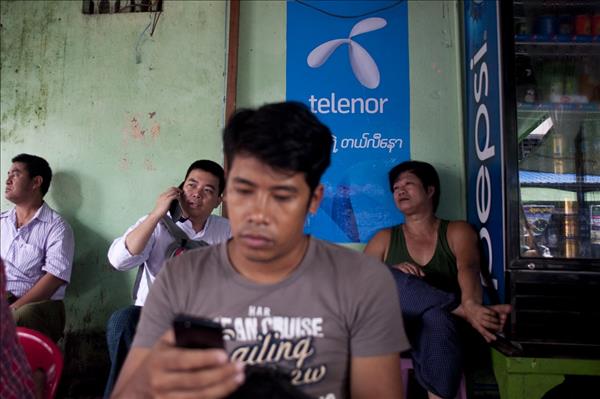
Myanmar's conflagration sparked Telenor's fire sale
(MENAFN- Asia Times) YANGON – Norwegian telecom giant Telenor's surprise decision to divest from Myanmar underscores the dilemma many foreign investors face in the volatile and uncertain aftermath of the military's February 1 coup.
Last week, the firm sold off its entire mobile operations to the Lebanese M1 Group holding group for a fire sale price of US$105 million, a significant write-down on the $600 million Telenor has invested in Myanmar since starting operations in 2014.
A company statement cited a“further deterioration of the situation and recent developments in Myanmar” as the rationale for its sale.
It's unclear how the sale will affect the country's telecommunications infrastructure, which has been significantly modernized by the departing Norwegians but is costly to maintain.
According to an industry estimate on voice traffic made before the February military coup, state-run MPT and Telenor each had 30% of the market. Mytel, a joint venture between Vietnam's Viettel and the Myanmar military, held 25% while Qatar's Ooredoo had 15%.
The National Unity Government of Myanmar, established by elected lawmakers opposed to the military's coup, has criticized the military junta for driving out one of the country's top foreign investors.
“We deeply regret the move by Norway's Telenor Group to sell its Myanmar mobile business and exit the country, but acknowledge that the military junta has created an increasingly hostile environment for ethical businesses,” Tin Tun Naing, the NUG's planning, finance and investment minister, told Asia Times.
The deal is still subject to the junta's approval. It's unclear if Telenor's decision was driven partly or wholly by military demands to install censorship and surveillance software and requests for individual users' personal data, analysts say.

Protesters hold an anti-coup vigil in Yangon in March. The military wants telecom companies to help with surveillance. Photo: AFP
Military authorities have pressured Telenor for reasons of national security to alternatively shut or slow down mobile telecom and internet services since staging the coup. Before the coup, the firm was forced to unplug internet services in restive Rakhine and Chin states.
Many observers anticipate the military will command greater control over the national telecom infrastructure in the transition from Telenor to M1 Group. That, many fear, could usher in a new period of intense cyber surveillance to ferret out opponents of the coup.
“We know that Telenor has resisted the military's pressure to install intercept and surveillance software and share users' data, unlike the military-controlled operators MPT and Mytel,” Tin Tun Naing said.
Telenor is not alone in the ethical dilemma of doing business in Myanmar under abusive military rule. Japan's Kirin, which was in a joint venture with a military holding company, pulled out of the country soon after the coup.
“A company faces an impossible ethical challenge when a country's legal framework prevents it from fulfilling its responsibility to respect human rights as is the case with the military regime's demands on operators to facilitate extensive surveillance,” said Vicky Bowman, director of Myanmar Centre for Responsible Business.
OECD Guidelines for Multinational Enterprises say that where domestic laws conflict with international human rights standards, enterprises should seek ways to honor them to the fullest extent which does not place them in violation of domestic law, Bowman said.
Still,“there will be times when the company decides it is preferable to leave, particularly if its employees are under threat.”
In a joint foreign-local business chamber survey conducted in April, employee safety was among the top three concerns of companies in the country.

People queue to buy Telenor's sim card at a mobile shop in Yangon in October 2014. Photo: AFP / Ye Aung Thu
Telenor, which started operating in Myanmar eight years ago under the quasi-military government of retired General Thein Sein, had consistently spoken out against government demands to impose blackouts and restrictions on cyberspace, including the junta's ban on selected apps and websites.
In a May joint statement, Telenor, local media outlet Frontier Myanmar and others warned against the junta's so-called“whitelisting” approach to banning certain apps and sites, arguing that it is discriminatory and urged an end to the censorship.
M1 Group is a holding company owned by the former prime minister of Lebanon, Najib Mikati, and his brother Taha and has a history of doing business with dictators in Africa and the Middle East.
The firm has links to the Myanmar military through its shareholdings in Irrawaddy Green Towers, a company that provides telecom towers for military-linked mobile operator Mytel.
According to an investigation from activist group Justice for Myanmar, the military junta is installing surveillance systems at telecom operators to better monitor citizens, evidence that the regime intends to impose a more technologically driven police state.
Irrawaddy Green Towers was named in 2019 by the UN Fact-Finding Mission because of its relationship with Mytel. Burma Campaign UK included the company on its so-called“Dirty List” due to the relationship.
“The UN Guiding Principles on Business and Human Rights call for the company to undertake a credible assessment of the potential adverse impacts of disengaging and Telenor should do this, which should take into account the track record on human rights of their proposed buyer,” Bowman said.
There is no doubt that Myanmar's telecom ecosystem was“far better with Telenor than without”, Tin Tun Naing said.“The company has tried to protect human rights in Myanmar as best it can.”

A Myanmar office worker speaking on her phone in Yangon. There are fears that Telenor's stake in the industry could be onsold to a Chinese or Russian company which would collude with the junta. Photo: AFP / Soe Than Win
The parallel minister also warned the M1 Group of its responsibility to protect human rights according to international standards and sent a warning the deal could be dissolved if the junta falls from power.
“The military council is illegal. It does not have the power to enact legislation in the name of the Myanmar people. We consider compliance with its orders or 'legislation' to be an intolerable infringement on people's liberty and privacy,” Tin Tun Naing added.
According to Yangon-based corporate executives familiar with the matter, the more immediate question is whether the junta will approve the deal.
There is already speculation that M1 Group could quickly flip the telcom business to a Chinese or Russian company that would more readily oblige or even help to develop the regime's surveillance requirements, or a Myanmar crony of the military regime that would do the same.
Ooredoo, the Qatari operator that has been less willing to push back against the regime's orders, and Japanese businesses KDDI and Sumitomo Corporation, who are in partnership with MPT in operating the state-run telecom service provider, are also expected to face new scrutiny.
Sumitomo executives told a news conference in May that the company did not expect to make any profit from its telecommunications business in Myanmar due to the political instability.
Justice for Myanmar spokesperson Yadanar Maung said,“As the military regime attempts to silence the people and crush dissent, KDDI and Sumitomo have a special responsibility to end their complicity with these shocking human rights violations against our people.”
Telenor's departure, some business executives predict, could lead to an avalanche of foreign business departures.

A soldier stands next to a detained man during a demonstration against the military coup in Mandalay on March 3, 2021. Photo: AFP/Stringer
Shortly after Telenor announced its sale several food companies from Taiwan including Koi Bubble Tea and the US-pretzel chain Auntie Anne's announced they too were leaving.
Japanese multinational auto and truck parts manufacturer Bridgestone has also decided to suspend its operations in Myanmar by the end of July. Thailand's Amata industrial estate developer and Hong Kong's Peninsula hotel chain have also announced the suspension of operations since the coup.
These business decisions may be as economic as ethical. Fitch Solutions ratings agency has forecast the Myanmar economy will shrink by 20% this year, a reflection of how most, if not all, Myanmar-based businesses are struggling to survive since the coup.

Legal Disclaimer:
MENAFN provides the
information “as is” without warranty of any kind. We do not accept
any responsibility or liability for the accuracy, content, images,
videos, licenses, completeness, legality, or reliability of the information
contained in this article. If you have any complaints or copyright
issues related to this article, kindly contact the provider above.
















Comments
No comment